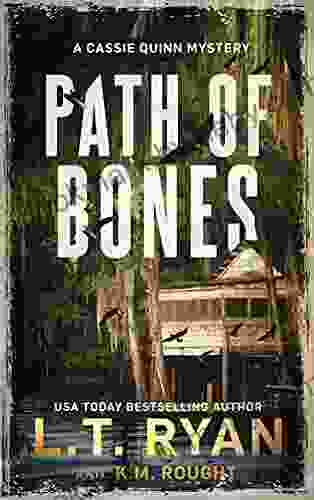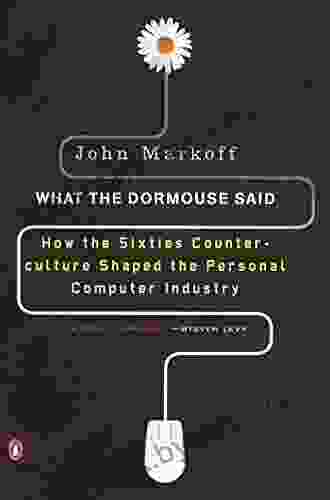The Unlikely Roots of the Personal Computer: How the Sixties Counterculture Ignited the Digital Revolution

The personal computer, an indispensable tool in our modern world, has its origins in a most unlikely place: the counterculture movement of the 1960s.
The counterculture, with its emphasis on individualism, self-expression, and the rejection of authority, created a fertile ground for the development of new ideas and technologies that challenged the status quo.
4.3 out of 5
| Language | : | English |
| File size | : | 610 KB |
| Text-to-Speech | : | Enabled |
| Screen Reader | : | Supported |
| Enhanced typesetting | : | Enabled |
| Word Wise | : | Enabled |
| Print length | : | 333 pages |
One of the most important of these ideas was the concept of the personal computer. At a time when computers were龐大,房間大小的機器,被大公司和政府所垄断,counterculture thinkers envisioned a world where everyone had access to their own personal computing device.
This vision was driven by a desire for greater freedom and autonomy. The counterculture believed that computers could be used to empower individuals, to break down barriers, and to create a more democratic and egalitarian society.
The counterculture's influence on the development of the personal computer can be seen in several key areas.
1. The Homebrew Computer Club
One of the most important milestones in the development of the personal computer was the founding of the Homebrew Computer Club in 1975. This club, which brought together hobbyists, engineers, and hackers, was a breeding ground for new ideas and innovations.
Many of the members of the Homebrew Computer Club were inspired by the counterculture's values of self-reliance and community. They believed that computers should be accessible to everyone, not just to the elite.
Out of the Homebrew Computer Club came some of the most influential early personal computers, including the Altair 8800 and the TRS-80. These machines helped to popularize the idea of the personal computer and paved the way for the development of the modern PC.
2. The Whole Earth Catalog
Another important influence on the development of the personal computer was the Whole Earth Catalog. This counterculture publication, which was founded in 1968, was a collection of tools and ideas for living a sustainable and self-sufficient life.
The Whole Earth Catalog featured several articles on computers and electronics. These articles helped to introduce the counterculture to the potential of personal computing.
The Whole Earth Catalog also played a role in the development of the personal computer industry by providing a network for early computer enthusiasts. The publication's readers included many of the people who went on to found the first personal computer companies.
3. The Hacker Ethic
The counterculture movement also had a profound influence on the development of the hacker ethic. This ethic, which emphasizes collaboration, openness, and the free exchange of information, has been a driving force in the development of the personal computer industry.
The hacker ethic was born out of the counterculture's belief in the power of collective action. Hackers believed that by sharing their knowledge and working together, they could create a more just and equitable world.
The hacker ethic has had a lasting impact on the personal computer industry. It has helped to foster a culture of innovation and collaboration that has led to the development of some of the most important technologies of our time.
The personal computer is a product of the counterculture movement of the 1960s. The counterculture's values of individualism, self-expression, and the rejection of authority created a fertile ground for the development of new ideas and technologies.
The counterculture's influence can be seen in the development of the Homebrew Computer Club, the Whole Earth Catalog, and the hacker ethic. These three factors played a key role in the development of the personal computer industry and continue to shape the way we use computers today.
4.3 out of 5
| Language | : | English |
| File size | : | 610 KB |
| Text-to-Speech | : | Enabled |
| Screen Reader | : | Supported |
| Enhanced typesetting | : | Enabled |
| Word Wise | : | Enabled |
| Print length | : | 333 pages |
Do you want to contribute by writing guest posts on this blog?
Please contact us and send us a resume of previous articles that you have written.
 Book
Book Novel
Novel Page
Page Chapter
Chapter Text
Text Story
Story Genre
Genre Reader
Reader Library
Library Paperback
Paperback E-book
E-book Magazine
Magazine Newspaper
Newspaper Paragraph
Paragraph Sentence
Sentence Bookmark
Bookmark Shelf
Shelf Glossary
Glossary Bibliography
Bibliography Foreword
Foreword Preface
Preface Synopsis
Synopsis Annotation
Annotation Footnote
Footnote Manuscript
Manuscript Scroll
Scroll Codex
Codex Tome
Tome Bestseller
Bestseller Classics
Classics Library card
Library card Narrative
Narrative Biography
Biography Autobiography
Autobiography Memoir
Memoir Reference
Reference Encyclopedia
Encyclopedia A S Byatt
A S Byatt Jacob Brezinski
Jacob Brezinski Shira Lipkin
Shira Lipkin Joseph L Badaracco Jr
Joseph L Badaracco Jr Tina Fey
Tina Fey James F Boswell
James F Boswell Jack Cheevers
Jack Cheevers Jack Rasmus
Jack Rasmus James Defilippis
James Defilippis Mohammed Yousuf
Mohammed Yousuf Joanne Macgregor
Joanne Macgregor J D Riley
J D Riley Jacki Pritchard
Jacki Pritchard Jack Womack
Jack Womack Yumi Hotta
Yumi Hotta Melissa Rivers
Melissa Rivers Jalal Al Din Rumi
Jalal Al Din Rumi Iola Reneau
Iola Reneau Ronald Wheeler
Ronald Wheeler Jacob Broschart
Jacob Broschart
Light bulbAdvertise smarter! Our strategic ad space ensures maximum exposure. Reserve your spot today!

 Ralph EllisonUnlock the Secrets: Rekindling the Love of Learning with "The Homescholar...
Ralph EllisonUnlock the Secrets: Rekindling the Love of Learning with "The Homescholar...
 Chadwick PowellMemoir of Jane Austen: Annotated and Illustrated - A Captivating Literary...
Chadwick PowellMemoir of Jane Austen: Annotated and Illustrated - A Captivating Literary...
 Junichiro TanizakiElevate Your Tennis Game: Your Guide to Strategy, Technique, Equipment, and...
Junichiro TanizakiElevate Your Tennis Game: Your Guide to Strategy, Technique, Equipment, and... Franklin BellFollow ·11.4k
Franklin BellFollow ·11.4k Harry CookFollow ·4k
Harry CookFollow ·4k Blake BellFollow ·14.1k
Blake BellFollow ·14.1k Forrest ReedFollow ·6.2k
Forrest ReedFollow ·6.2k Kevin TurnerFollow ·11.3k
Kevin TurnerFollow ·11.3k Felix HayesFollow ·10k
Felix HayesFollow ·10k Steve CarterFollow ·8.6k
Steve CarterFollow ·8.6k Eliot FosterFollow ·15.7k
Eliot FosterFollow ·15.7k

 Phil Foster
Phil FosterThe Unforgettable Easter: Ramona's Journey of Discovery...
Embark on Ramona's Extraordinary Easter...

 Levi Powell
Levi PowellThe Old City and Mount of Olives: A Journey Through...
Jerusalem, a city etched into the annals of...

 Henry Hayes
Henry HayesThe Clearances: A Journey Through Scotland's Hidden...
In the 18th and 19th...

 Edward Reed
Edward ReedUnravel the Enigmatic 'Path of Bones' with Cassie Quinn...
Step into the...
4.3 out of 5
| Language | : | English |
| File size | : | 610 KB |
| Text-to-Speech | : | Enabled |
| Screen Reader | : | Supported |
| Enhanced typesetting | : | Enabled |
| Word Wise | : | Enabled |
| Print length | : | 333 pages |










